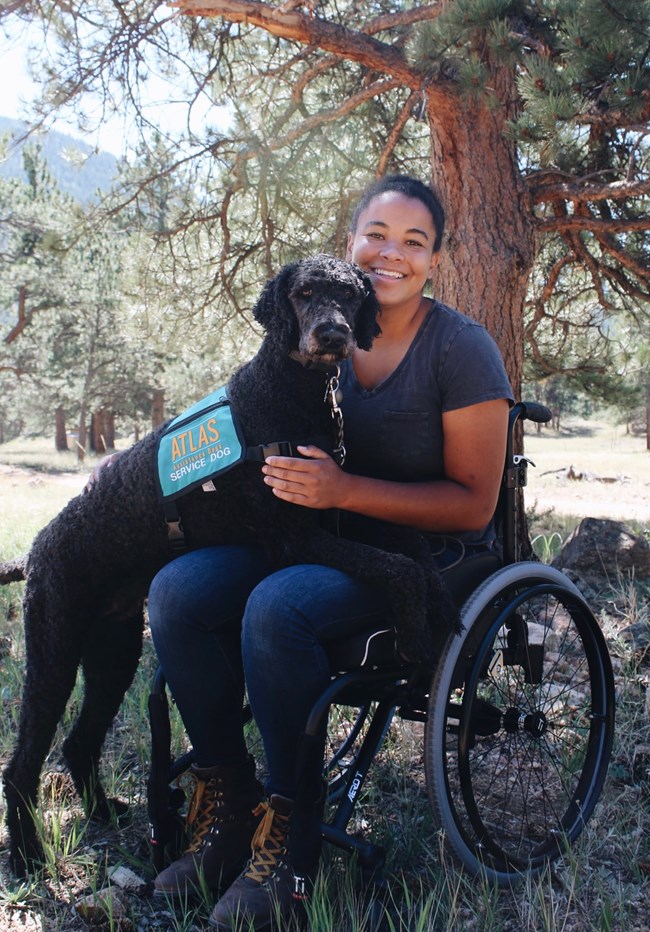
Courtesy of Rocky Mountain Conservancy
In October 2018, the National Park Service (NPS) issued a policy memorandum regarding the use of service animals by persons with disabilities in national parks. The revised policy aligns the NPS policy with the standards established by the Department of Justice and the Americans with Disabilities Act.
Dogs classified as service animals are individually trained to perform a specific task that assists a person with a disability. Service dogs are legally permitted anywhere that visitors can go. They must be allowed wherever visitors are allowed.
Examples of such work or tasks include guiding people who are blind, alerting people who are deaf, pulling a wheelchair, alerting and protecting a person who is having a seizure, reminding a person with mental illness to take prescribed medications, calming a person with Post Traumatic Stress Disorder (PTSD) during an anxiety attack, or performing other duties. Service animals are working animals, not pets. The work or task a dog has been trained to provide must be directly related to the person’s disability.
Emotional support, therapy, and companion animals are not service animals under the Americans with Disabilities Act (ADA), they have not been trained to provide a task directly related to a disability. Emotional support animals are considered to be a pet.
Service dogs-in-training are not service animals under ADA, but are considered pets. Pets must abide by the Individual Park Pet Regulations.
For more information about pets in parks, visit the National Park Pets website.
Entities covered by the ADA must modify their policies to permit miniature horses where reasonable. The regulations set out four assessment factors to assist entities in determining whether miniature horses can be accommodated in their facility. The assessment factors are (1) whether the miniature horse is housebroken; (2) whether the miniature horse is under the owner’s control; (3) whether the facility can accommodate the miniature horse’s type, size, and weight; and (4) whether the miniature horse’s presence will not compromise legitimate safety requirements necessary for safe operation of the facility.
Service Animal FAQs for staff (NPS access only)
"In addition to the provisions about service dogs, ADA regulations have a separate provision about miniature horses that have been individually trained to do work or perform tasks for people with disabilities. (Miniature horses generally range in height from 24 inches to 34 inches measured to the shoulders and generally weigh between 70 and 100 pounds.)" Source: ADA.gov
-
 Service Animals in Wilderness
Service Animals in WildernessLink to our NPS Wilderness page
-
 Memorandum on Service Animals
Memorandum on Service AnimalsLink to NPS service animal official memorandum.
-
 Appalachian Flatrock TrailPhysical/Mobility disability
Appalachian Flatrock TrailPhysical/Mobility disabilityLearn more about our visiting our Parks with a physical disability.
Last updated: June 27, 2025
